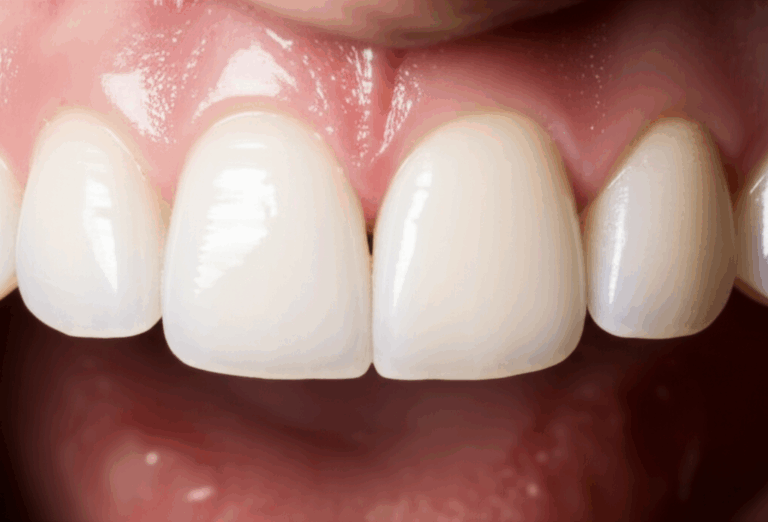
How to Become a Government Dentist: Your Friendly, Step-by-Step Guide to a Rewarding Public Service Career
Have you ever wondered what it’s like to use your dental skills to help veterans, children, or people in rural areas who need it most? Or maybe you’re just curious—what does it take to land a dental job with the government, and how is it different from working in private practice? If these thoughts have crossed your mind, you’re in just the right place.
Let’s admit it: staring down student debt, job market worries, and big life choices can feel like a lot. But here’s some good news—a career as a government dentist comes with lots of upsides: stable work, good pay, great benefits, and that special feeling you get from making a real difference. But what’s the process really like? What are the tough parts or hidden bonuses? And is this career really the right fit for you?
Here, I’ll walk you through what you need to know—in simple words, with real examples and clear advice to help you make a smart choice about your dental future.
In This Article
- What Is a Government Dentist and Why Pick This Path?
- Understanding Government Dental Jobs & Agencies
- The Education and Licensing You’ll Need
- Applying for Government Dentist Positions: The Process Explained
- Salary, Benefits & Career Outlook—What Can You Really Expect?
- Challenges and Things to Think About: The Real Story
- Helpful Resources for Your Government Dentistry Journey
- Healthy Takeaway: Steps to Start Your Government Dental Career
What Is a Government Dentist and Why Pick This Path?
Let’s start at the beginning: What is a government dentist, and is this job right for you?
Defining a Government Dentist
Put simply, a government dentist is a dental worker hired by government agencies—at the federal, state, or local level—to take care of people’s teeth and mouths. Instead of working for profit in a private office, they work for the people. You might end up working for the Department of Veterans Affairs (VA), the Indian Health Service (IHS), a public health office, or even as a dentist for the military.
Why Choose Government Dentistry?
If you want a job that’s about more than just a paycheck, government dentistry comes with some special things:
- Job Stability and Security: Government jobs don’t usually disappear in a bad economy. Your pay and benefits keep coming.
- Great Benefits: Count on good health insurance, solid retirement plans, paid time off, and maybe even loan help.
- Regular Hours: Lots of government dentistry jobs are Monday through Friday, usually with few late nights or weekends.
- Helping Others: If giving back matters to you—serving veterans, Native Americans, kids in tough places, or people far from big cities—the government can put you where help is needed most.
- Learning and Growing: Lots of chances for extra training and career growth.
Of course, there are downsides too (just like any job), and I’ll talk about them below. But for a lot of people, the mix of financial benefits, job safety, and a real sense of purpose makes it a great option.
Understanding Government Dental Jobs & Agencies
Now let’s see what kinds of jobs you could get, and where you could work.
Federal Government Dental Jobs
Jobs at the top level of government often include:
1. Department of Veterans Affairs (VA):
Here you care for U.S. veterans, working in teams to give them full dental treatment.
2. Indian Health Service (IHS):
Imagine helping Native American and Alaska Native communities in far-off places. IHS roles can bring some travel and new experiences.
3. U.S. Public Health Service (PHS) Commissioned Corps:
As an officer here, you might help out during big emergencies or lead programs to prevent dental problems for the public.
4. Department of Defense (DoD):
Dentists here look after the teeth of military members and their families. Each branch—Army, Navy, Air Force—has its own Dental Corps.
5. Federal Bureau of Prisons (BOP) & Department of Justice:
Dentists work inside prisons, facing some special challenges and stories, while helping keep inmates’ mouths healthy.
6. Centers for Disease Control (CDC), National Institutes of Health (NIH):
Prefer research or public health? Some jobs are about tracking dental health or setting up new health rules.
State and Local Government Dental Jobs
- State Departments of Health:
Run clinics, school programs, and public health events.
- County & City Health Departments:
Do care and education in cities or neighborhoods, often helping those who need it most.
- Correctional Facilities:
Treat inmates to make sure everyone gets basic dental care and keep public health in check.
What About Other Roles?
Besides seeing patients, government dentists can be:
- Researchers (helping places like CDC or NIH follow dental health patterns)
- Policy helpers (giving advice on rules)
- Teachers (training new dentists or giving talks)
- Managers (leading programs, running offices, or organizing health projects)
Every one of these helps the public. Your choice? Find the spot that fits your skills and what you care about most.
The Education and Licensing You’ll Need
You’re likely asking: What do I have to do first? How does it differ from being a regular dentist?
Here’s how it usually goes:
1. Get Your Bachelor’s Degree
Most dental schools want a bachelor’s degree. Taking science classes like biology and chemistry helps. Good grades and strong reference letters are important.
2. Finish Dental School: DDS or DMD
- Go to a dental school in the U.S. or Canada.
- Graduate as a DDS (Doctor of Dental Surgery) or DMD (Doctor of Medicine in Dentistry).
- Both degrees are the same in the eyes of employers—including government.
3. State Dental License
- Pass National Exams: Most need the Integrated National Board Dental Examination (INBDE) or the old NBDE I/II.
- Do a Clinical Board Exam: Which test you take depends on your state (like ADEX, WREB, CDCA).
- Keep Up With New Training: Some jobs want proof you keep learning.
4. (Recommended) Do a Residency
Not always needed, but a General Practice Residency (GPR) or Advanced Education in General Dentistry (AEGD) helps, especially for jobs where you treat sicker patients or lead teams.
For certain government jobs in things like oral surgery or children’s dentistry, you’ll need more school—a special residency—and proof you passed extra tests.
5. (For Public Health or Research Jobs) Think About a Public Health Degree
- MPH (Master of Public Health): This is great if you want to go into research or public health.
- Epidemiology & Policy: There’s a bigger need than ever for dentists who can study data or build big prevention projects.
6. (Sometimes) Federal or Multi-State License
- Some jobs are ok if you have a license in any U.S. state.
- There’s also the new Dental Licensure Compact, which could soon let more dentists work across states with less paperwork.
Notice that most of this is also what a private practice dentist does. The big difference? Some government offices like or need certain backgrounds—like public health training or experience working with groups who can’t easily get care.
Applying for Government Dentist Positions: The Process Explained
You’ve got your degree and license—what comes next? Getting into government dentistry has a few extra steps.
Where to Find Government Dental Jobs
- Federal Jobs:
- USAJOBS.gov is the main site for most government job listings.
- Check out the VA, IHS, and DoD dentist pages too.
- State & Local Jobs:
- State and county health websites usually have their own job boards.
- Some schools, jails, and clinics share job openings on their sites.
How to Apply: Step-by-Step
1. Creating Your Government Resume & Cover Letter
Government resumes need more details than regular ones:
- List all schooling, licenses, courses, and training.
- Lay out your experience in order—explain what you did at each job.
- Use words from the job ad (things like “public health dentistry,” “community outreach,” “teamwork”).
- Show experience with special groups, new dental tools, or leadership if you have it.
2. Applying Through USAJOBS or a State Site
- Fill out everything, upload papers (resume, licenses, school records, proof of training).
- Answer all the questions honestly—sometimes these pick who moves on.
3. The Interview
- Be ready for questions about how you work:
“Describe a time you handled a dental emergency.”
“Tell us about working with a tough patient or team member.”
- Learn about the agency’s mission—like helping veterans at the VA or working in rural areas at IHS.
- Interviews might be with a panel, by phone, online, or in person.
4. Checks & Clearances
- Government jobs usually need background checks, and sometimes special security papers.
- Expect fingerprinting, calls to your references, and a check on any criminal record.
5. Understanding the Federal Pay Scale (GS Scale)
Federal dentist pay follows the General Schedule (GS)—usually GS-11 to GS-13 for dentists.
- Your “grade” is based on schooling, experience, and job type.
- “Steps” and “locality pay” mean you can earn more as you stay longer or work in some areas.
Special Case: Military Dental Jobs
Signing up as a dentist in the military means you’ll need to finish officer training and maybe pass some health tests. Some get help with student loans or a bonus for joining.
Salary, Benefits & Career Outlook—What Can You Really Expect?
Here’s what most people want to know—can I pay off my loans and save for later?
Government Dentist Pay Ranges
Here’s what you might expect:
| Position/Setting | Typical Salary Range (US, 2024) |
|---|---|
| Federal Dentist (GS-12/13, starting) | $97,000 – $128,000 (plus locality) |
| VA Dentist (GS-scale) | $120,000 – $185,000+ |
| IHS Dentist | $110,000 – $180,000 (extra for remote places) |
| DoD Dentist | $100,000 – $160,000 (plus military benefits) |
| State/Local Health Dept. Dentist | $90,000 – $160,000 |
| Correctional Facility Dentist | $85,000 – $140,000 |
(The actual pay depends on where you work, how long you’ve been there, your job, and if the place is hard to staff—remote jobs often pay more or help with loans.)
The Good Stuff With Government Dental Jobs
- Health, dental, and vision care:
Usually through the Federal Employee Health Benefits (FEHB) or state plans.
- Retirement plans:
Most federal jobs come with a FERS pension and a Thrift Savings Plan (TSP)—so you get both steady retirement money and savings options.
- Help With Loans:
Many jobs qualify for Public Service Loan Forgiveness (PSLF). Some (like NHSC and PHS) offer extra loan repayment if you work in communities that need you.
- Paid Time Off:
Get federal holidays, sick leave, and vacation.
- Life insurance:
Federal employees can get FEGLI (Federal Employee Group Life Insurance).
- Job safety:
Government jobs are more likely to keep you working, even if times get tough.
- Keep Learning:
Many places pay for more classes or extra certificates.
The Long-Term View: Growing in Your Career
- Moving Up:
Go higher by taking jobs as a lead or supervisor.
- Specializing:
You can pick specialties—like surgery, public health, or research—after working for a while in the system.
- Non-Patient Roles:
Research, policy, teaching, and management jobs are also out there.
- Work-Life Balance:
Schedules are less crazy—rarely will you work nights or weekends in these jobs.
Challenges and Things to Think About: The Real Story
No job is perfect. Here’s what you might not hear everywhere else:
1. Paperwork and Rules
You’ll see more forms, steps, and official rules than in a private office. Being patient and flexible really helps.
2. Where You Work
Some government jobs mean you might be sent to a rural spot or somewhere not your first choice.
3. What You Can Do
You might not get to do every kind of dental procedure if the agency has set rules.
4. Change Happens Slowly
New tools or policies can roll out slower in government places.
5. How People View the Job
Some people still think government work isn’t as high-level as private practice, even though your work really matters.
Even so, a lot of government dentists feel the good outweighs the bad—especially if their job matches their own goals.
Helpful Resources for Your Government Dentistry Journey
Ready to see what’s possible? These sites and groups can really help:
- USAJOBS.gov: Main U.S. government job site.
- VA Careers: Info and openings for VA jobs.
- Indian Health Service (IHS) Careers: Up-to-date job info for IHS jobs.
- National Health Service Corps (NHSC): Learn about loan help and scholarships for working in communities that need you.
- Professional associations:
- American Dental Association (ADA): Includes info on getting and keeping your license.
- American Association of Public Health Dentistry: Focuses on jobs that help others.
- Networking: Look for LinkedIn or other online groups with government dentists.
If you’re excited by technology—like digital dental labs for better care or dental ceramics labs for special crowns—knowing these tools can help you stand out in future government jobs, both treating patients and running clinics.
Healthy Takeaway: Steps to Start Your Government Dental Career
Here’s a quick review:
- Government dental jobs are found at many levels—federal, state, and local. There’s work with patients, research, teaching, or making health rules.
- You must have a DDS or DMD, plus a license, and for certain jobs, even more training in public health or a dental specialty.
- Applying is a bit more detailed than normal—write a strong, specific resume, learn how to use job websites, and be ready for interviews that look at both your skills and your passion for helping others.
- You’ll find great job safety, strong pay, good retirement, health perks, and extra help like student loan programs.
- Be ready for some trade-offs: more rules, possible moves, and strict job outlines.
- Use dental groups and job sites to stay up to date and ready for what’s next.
Your last step? Decide if helping others is what drives you—because, while the pay and benefits are good, it’s the chance to make a difference that really sets government dentistry apart.
Still curious about other dental jobs, or want to grow your skills with new tech? Read more about lab advances (like 3D dental labs or new ways to make crowns) to stay fresh in any setting.
Remember, the biggest thing you bring is your commitment—to your own future and to the people who count on your care. Take your first step today, and maybe you’ll be the reason someone smiles again.
Here’s to you, and to making a real difference with dentistry!
> References
> * American Dental Association (ADA), “Careers in Public Health Dentistry.”
> * U.S. Department of Veterans Affairs, “Dental Careers.”
> * Indian Health Service, “Dental Opportunities.”
> * U.S. Public Health Service, “Dental Officer Careers.”
> * U.S. Bureau of Labor Statistics (BLS), “Dentists: Occupational Outlook Handbook.”
> * National Health Service Corps, “Loan Repayment Programs.”
Frequently Asked Questions About Government Dentistry
Q: Do all government dentist jobs come with loan help?
A: Not always. Many jobs qualify, but check every agency’s offer. The National Health Service Corps (NHSC), Indian Health Service (IHS), and some VA jobs have strong loan help, especially in places that need you.
Q: Can I work part-time or move to another state?
A: Yes! Many agencies offer part-time, and new licensing rules may let dentists work in more than one state.
Q: Can I switch from private work to government—or the other way around?
A: For sure. Many dentists go from private practice to government to get better schedules or a new sense of mission. You might just need a little time to adjust to how things work in government jobs.
Ready to Serve?
If you want job safety, nice benefits, and a real way to help others, a government dental career could be just right. Start your journey today—be positive, caring, and ready to make a real difference.








